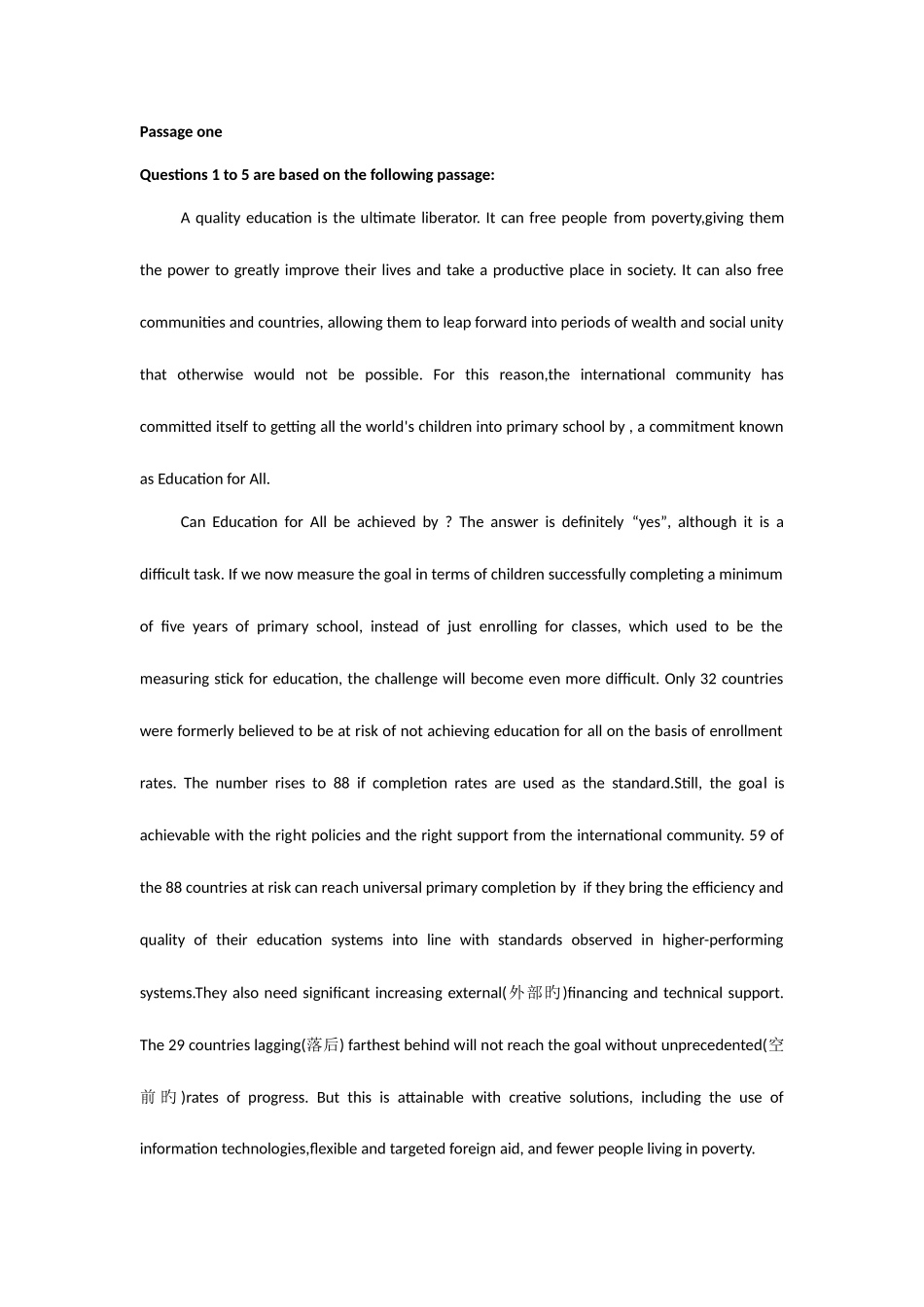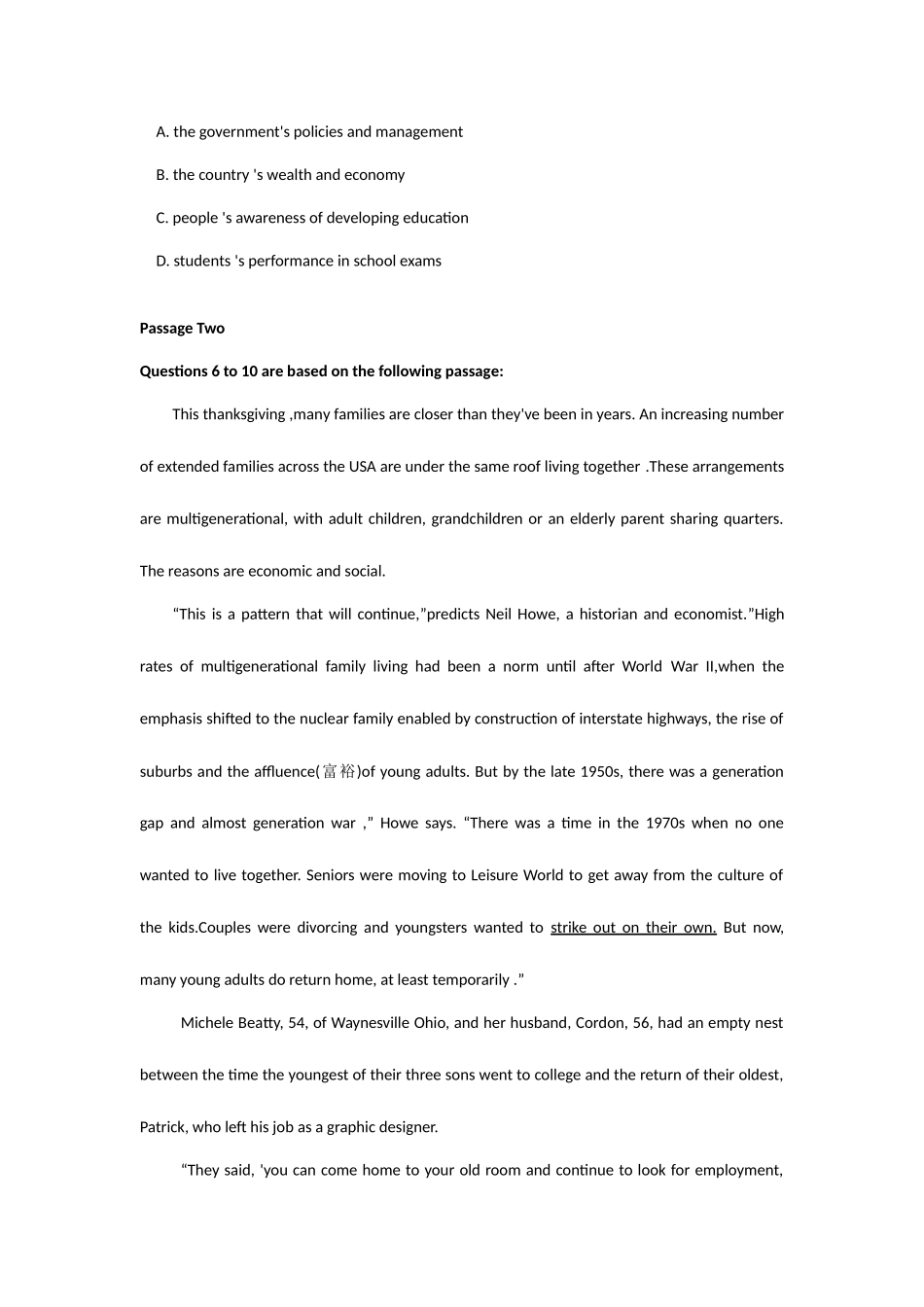Passage oneQuestions 1 to 5 are based on the following passage:A quality education is the ultimate liberator. It can free people from poverty,giving them the power to greatly improve their lives and take a productive place in society. It can also free communities and countries, allowing them to leap forward into periods of wealth and social unity that otherwise would not be possible. For this reason,the international community has committed itself to getting all the world's children into primary school by , a commitment known as Education for All.Can Education for All be achieved by ? The answer is definitely “yes”, although it is a difficult task. If we now measure the goal in terms of children successfully completing a minimum of five years of primary school, instead of just enrolling for classes, which used to be the measuring stick for education, the challenge will become even more difficult. Only 32 countries were formerly believed to be at risk of not achieving education for all on the basis of enrollment rates. The number rises to 88 if completion rates are used as the standard.Still, the goal is achievable with the right policies and the right support from the international community. 59 of the 88 countries at risk can reach universal primary completion by if they bring the efficiency and quality of their education systems into line with standards observed in higher-performing systems.They also need significant increasing external(外部旳)financing and technical support. The 29 countries lagging(落后) farthest behind will not reach the goal without unprecedented(空前 旳 )rates of progress. But this is attainable with creative solutions, including the use of information technologies,flexible...


